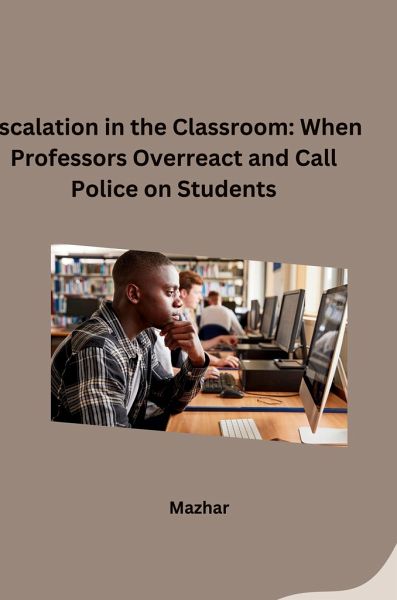
Escalation in the Classroom: When Professors Overreact and Call Police on Students
Versandkostenfrei!
Versandfertig in 6-10 Tagen
30,61 €
inkl. MwSt.

PAYBACK Punkte
0 °P sammeln!
Imagine a classroom situation: a student talks out of turn, frustration builds, and the professor makes a call. Not to a dean, but to the police. This alarming trend of professors calling law enforcement on students for minor disruptions highlights a critical issue of escalation in the classroom.While professors have a responsibility to maintain order, resorting to police involvement can have serious consequences. These interactions can be humiliating for students, especially students of color who may face racial bias. Furthermore, police presence can escalate situations unnecessarily, potenti...
Imagine a classroom situation: a student talks out of turn, frustration builds, and the professor makes a call. Not to a dean, but to the police. This alarming trend of professors calling law enforcement on students for minor disruptions highlights a critical issue of escalation in the classroom.While professors have a responsibility to maintain order, resorting to police involvement can have serious consequences. These interactions can be humiliating for students, especially students of color who may face racial bias. Furthermore, police presence can escalate situations unnecessarily, potentially leading to violence or arrest.Effective classroom management involves de-escalation techniques and clear communication. Universities must equip professors with these skills and establish protocols for handling disruptive behavior. Calling the police should be a last resort, not the first line of defense in maintaining a productive learning environment.














